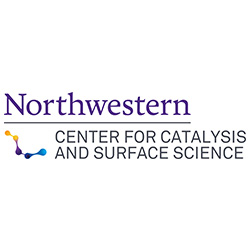CCSS October Seminar: Maureen Tang

When:
Friday, October 4, 2024
12:00 PM - 1:00 PM CT
Where: Ryan Hall, 4003, 2190 Campus Drive, Evanston, IL 60208 map it
Audience: Faculty/Staff - Student - Post Docs/Docs - Graduate Students
Contact:
Kimberly Leroi
Group: Center for Catalysis and Surface Science (CCSS)
Category: Lectures & Meetings, Academic, Environment & Sustainability
Description:
Description:
The Center for Catalysis and Surface Science will host Maureen Tang, Associate Professor of Chemical and Biological Engineering at Drexel University, for a special lecture on Friday, October 4.
Where: Ryan Hall, Room 4003 (Virtual option via Zoom)
When: Friday, October 4 | 12:00-1:00pm
Abstract
Electrifying the chemical industry has been much touted as a path to a low-carbon future, but nearly all pathways of interest are electrochemical reductions. If we want water-to-hydrogen, CO2-to-chemicals, or nitrogen-to-ammonia, from where will we get the electrons? Water-to-oxygen is thermodynamically expensive, kinetically slow, and generates a zero-value product. This talk will discuss two potential avenues of investigation for value-added electron-holes. In the first, we seek to determine the mechanism of six-electron water oxidation to ozone. We discuss our efforts to identify intermediates, understand the role of dopants, and deconvolute catalysis from corrosion in electrochemical ozone production. In the second, we investigate the feasibility of electrocatalytic cyclohexane oxidation. Our results show that molecular oxygen, not water, is the primary oxygen source, with implications for radical intermediates. We furthermore demonstrate the impact of cross-over in these systems and point to the importance of electrochemical reactor design in lab-scale studies. In the final part of this talk, I will discuss non-technical limitations to the aforementioned approach and use concepts from behavioral economics and organizational behavior to propose novel alternatives to productivity metrics in academic research.
Speaker Bio
Maureen Tang joined the faculty of Chemical and Biological Engineering at Drexel University in 2014 and was promoted with tenure in Spring 2020. Her primary research in electrochemistry and catalysis has trained over 60 students, while her side project on preventative technology for invasive insects is supported by the USDA and was profiled in Scientific American. Most recently, she has been working to design accessible classroom interventions that address emotional and mental-health barriers for undergraduate students. Professor Tang holds public office as a Montgomery County Judge of Elections along with BS and PhD degrees in Chemical Engineering from Carnegie Mellon and UC Berkeley.
About the Center for Catalysis and Surface Science (CCSS)
The Center for Catalysis and Surface Science (CCSS) promotes interdisciplinary research fundamental to the discovery, synthesis, and understanding of catalysts and catalytic reactions essential to modern society. As a part of the Paula M. Trienens Institute for Sustainability and Energy, we apply our fundamental advances in catalysis science towards applications in alternative fuels, abatement of harmful emissions, resource recovery concepts, new processing routes, and many other strategies towards making chemicals more sustainable.